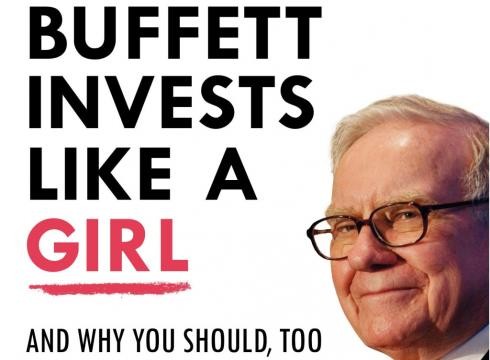Think Act and Invest Like Warren Buffett
Post on: 27 Сентябрь, 2015 No Comment

This is a tough book to review, because I generally respect the author, but there are many things I don’t like about the book. Let’s start with the main one:
My friend Alice Schroeder came to speak to the Baltimore CFA Society early in November. It was a great talk, and afterward, I took her back to the Amtrak station. What was our main topic of conversation? The many authors with limited or no dealings with Warren Buffett who invoke his name in order to get better sales. I won’t name names. I have relationships with a number of them.
I will review “The Snowball” soon. Alice Schroeder spent around five years creating that lengthy book, and I can see why she would be upset over those that use Buffett for their own personal gain.
This book is another example of that. Only chapters 1 and 2 have anything to do with Warren Buffett, and there he is quoted extensively to the point where he should be listed as a secondary author, and get a cut of the royalties. But in the next nine sections have almost nothing from Buffett; it is all the philosophy of Larry Swedroe.
Don’t get me wrong. Larry Swedroe is a very bright guy, and worthy of being read. But his philosophy is not that of Buffett. Yes, Buffett said a number of things stressing that average investors should invest passively, because they have no information edge. But that’s not what Buffett does himself.
I have written elsewhere that Buffett cannot be imitated by the rest of us (Part one , part two ). (For those reading me at Amazon, please come to Aleph Blog to get links.) Buffett buys whole companies. Few of us can do that. Buffett has a holding company that produces the ability to fund investments cheaply. None of us have that, and this book by Larry Swedroe, does not even touch on the most powerful and distinct things that Buffett does to earn returns.
Chapters three and beyond are really basic stuff that average people should do to manage their investments wisely. Larry Swedroe is great with that sort of thing. But it has nothing to do with Buffett.
That’s the main thing that irritates me here. Don’t put Buffett in the title if the book is not about Warren Buffett. This book is not about Buffett, it is about how average people should manage what excess assets they have.
Now, all that said, if you read the personal finance section of my blog (which is free) you won’t gain any additional insights from this book, and you won’t pay any money either. That said, giving a book like this to a friend who doesn’t get the management of assets could be very good for him. Show a man a website, and he ignores it. But a physical book — he might read it.
Swedroe does not get corporate bonds. They are valuable during the bull phase of the credit cycle. Those of us that follow the credit cycle make excess returns as a result. You have to be opportunistic and disciplined to do this. Yes, corporate bonds are hybrid investments — part equity, part guarantee. But intelligent investors can do well with corporate bonds — it is much less efficient than the stock market.
Also, he overestimates the number of stocks needed to diversify a portfolio on page 68.
On page 77, he engages in data-mining to show what would have worked best in the past, which has no relevance to what will work well in the future.
On page 113, he tells a story from “Time Management for Dummies,” without attribution.

On pages 126-7, he errs, because risk and reward are not correlated. Also, high yields usually portend risk, but that is not always true.
Finally, on page 131, he is too absolutist on corporate bonds. Most of the time, it might be better to hold stocks and Treasury bonds, but there are times when corporate bonds are mispriced in a panic, and it is time to buy them.
Who would benefit from this book: If you want basic book on asset allocation for average people, this could have value. If you want to imitate Buffett, this book will not help you in the slightest. If you want to, you can buy it here: Think, Act, and Invest Like Warren Buffett .
Full disclosure. I asked the publisher for the book, and he sent it.
If you enter Amazon through my site, and you buy anything, I get a small commission. This is my main source of blog revenue. I prefer this to a “tip jar” because I want you to get something you want, rather than merely giving me a tip. Book reviews take time, particularly with the reading, which most book reviewers don’t do in full, and I typically do. (When I don’t, I mention that I scanned the book. Also, I never use the data that the PR flacks send out.)
Most people buying at Amazon do not enter via a referring website. Thus Amazon builds an extra 1-3% into the prices to all buyers to compensate for the commissions given to the minority that come through referring sites. Whether you buy at Amazon directly or enter via my site, your prices don’t change.
By David Merkel, CFA of Aleph Blog














